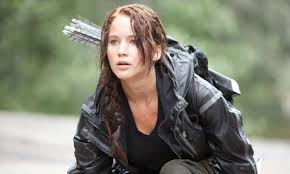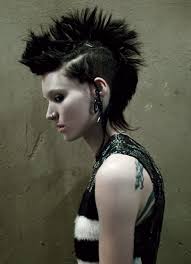If there's one thing I've learned from watching Charlie's Angels and reading critiques on it, it's that you don't have to be the opposite of the average woman to be a feminist. In fact, men can be feminists too! Who knew? If you are for equal rights for both men and women, you are a feminist. That doesn't mean that women should have MORE rights then men, just EQUAL rights. We've seen so much media that tries to reach out to both male and female audiences. A lot of the media we've analyzed at are action movies. When they try to market action movies to women, all they do is either stick some ass-kicking Kung Fu- doing anti-female as the lead or supporting role. But to keep the male viewers interested, they make her sexy. Which is fine, because guess what: they do the same thing with male leads. Ever see an unattractive male action hero? Imagine if in Die Hard, John Mclane was played by Danny Devito instead of Bruce Willis. Or if Thor was played by Seth Rogen. It just wouldn't work.
Unfourtanetly, most of the films and television series we've looked at (ex. Die Hard 4, Charlie's Angels) we've analyzed negatively. They don't seem to send the message that people think they are supposed to. At first glance, sure, they change things up a bit and question masculinity and femininity, but if you analyze closely enough, they just revert back to old school thinking in the end. They aren't as progressive as they're supposed to be and Hollywood is very clever at keeping you entertained while encouraging you not to think.
So what are some films that can be analyzed positively? I've chosen to talk about two: THE HUNGER GAMES and THE GIRL WITH THE DRAGON TATTOO. Both of which are adaptations of best selling books.


The Hunger games has sold over 25 million copies of the book and grossed 150 million in it's opening weekend. Third only to Harry Potter and The Dart Knight. I read the book before I saw the movie and found Katniss Everdeen to be phenomenal character, one who's voice I didn't mind staying in the entire read. She does everything by herself including taking care of her mother and sister, hunting with her bow and arrow, which is considered to be a man activity and winning the actual hunger games. There is one point in the book which is definitely worth looking at and is only briefly touched on in the movie where Katniss nurses her teammate/love interest Peeta back to health inside a cave. Peeta is practically the damsel in distress majority of the time and comes from a family of bakers. Talk about role reversal. Played remarkable strength and confidence by Jennifer Lawrence, Katniss is certainly pretty. But she doesn't use her sexuality to her advantage, in fact, sexuality isn't much of a them in the story at all. There is a slight love triangle between her, Peeta and Gale, but it's not the main basis of the story.
The second film, Girl With the Dragon Tattoo, is on a more adult heavily R-rated side of the spectrum, but still offers a unique and refreshing heroine. Lisbeth Salander is her name and though she shares the lead with Mikeal Blomkvist (played by Daniel Craig in the American version) she's pretty much the star of the show. The books were written by Stieg Larson, who got his inspiration for the character after witnessing his friend of the same name get raped. Larson was an advocate for women's rights and originally titled the book "men who hate women." While Dragon Tattoo isn't necessarilly an action movie, it is a thriller which is a genre that is always popular in the movie business. It's certainly worth taking a look at.

It would take pages to go on about Lisbeth's back story, which would be rife with spoilers. Instead of doing so, I'll just point out a few parts about the character I find most interesting. First off, her sexuality is never quite distinct. Sometimes she has sex with girls, sometimes with men. She always seems to treat the women better then the men and "has sex like a man," in Carrie Bradshaw's terms. This isn't necassarily a good thing, but the shoe can be on the other foot, guys.
Lisbeth is independent for the most part, steadfast and at times blunt. She dresses in a way that certainly draws attention to herself, but also tells people to F*** off. She is extremely intelligent and capable of hacking into just about any computer. So she draws on her intellectual powers to get things done, not her physical prowess, though she is capable of defending herself. She uses her sexuality as a weapon only once and it is in an act of revenge, but there's nothing sexy about it. Trust me. Lastly, the fact the Mikeal needs her to solve the case he is working on, but Lisbeth doesn't necassarilly need him says something.
Lets hope there's more Lisbeth Salanders and Katniss Everdeens in store for our future. Otherwise, how is anything going to change?